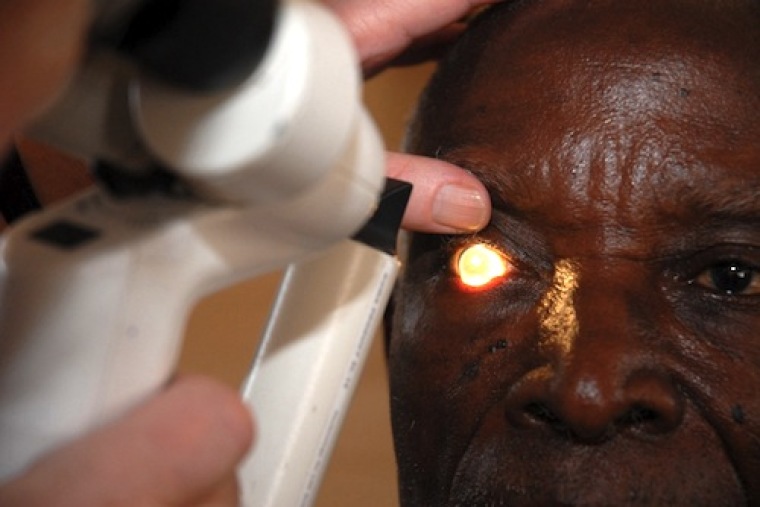
Statistics from the World Health Organization show that most of the world's blindness is preventable. But in many poor countries, eye care is simply not available or not accessible. For example, the West African country of Togo has a population of 6.4 million people, but only two hospitals. The fact that the majority of the population lives on less than two dollars a day further complicates access to health care.
According to Vision 2020, cataracts are the leading cause of blindness, and 80% of blindness is treatable, curable or preventable. Dr. Glenn Strauss, who gave up his eye practice to serve full-time with Mercy Ships as Chief of Ophthalmology, says simple and effective strategies could address this inequity.
Since 2004, Dr. Strauss has fine-tuned a procedure for cataract removal. The technique, which has been developed in Nepal, India, and onboard the Africa Mercy, requires no sutures. It is also cost-effective and efficient, allowing for a high-volume turnover of patients. Dr. Strauss can serve approximately 40 patients per day by using this procedure.
During this year's field service in West Africa, more than 700 patients a day lined up outside the Eye Center. To address this need, Mercy Ships also trains local doctors in the MSICS technique. For the last three years, Alcon, a corporate supporter of Mercy Ships, has sponsored a fellowship program. One recipient is Dr. Abram Wodome, a native of West Africa. He and Dr. Strauss trained five additional surgeons at two hospitals in Benin. As a result, the number of surgeries went from 320 surgeries a year to two thousand per year.
